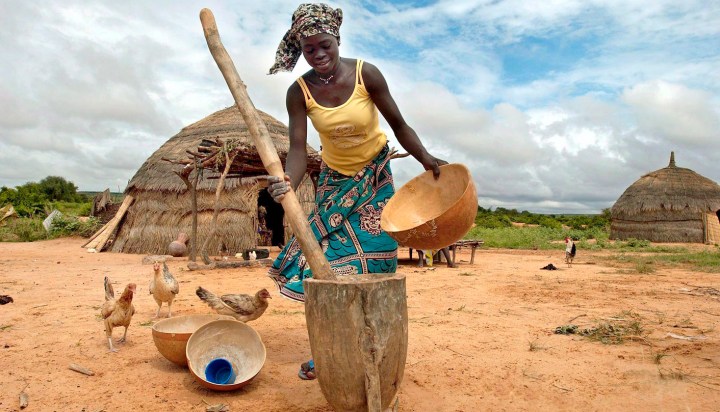Africa
The impossible baby boom: Inside Niger’s peculiar fertility wave

For a while, it seemed that Niger’s wealthy elites had discovered the cure for infertility. But what looked like a miracle turned out to be quite the opposite as authorities uncovered an international baby smuggling ring that implicated some of the country’s top officials. MERCEDES SAYAGUES reports.
In the last two years, a peculiar fertility wave hit some of Niger’s most prominent couples: among them, the president of the national assembly and popular opposition leader, the minister of agriculture, a police chief and a bank director.
Each family was blessed with the arrival of a baby boy, several with twin boys. Problem is, no one had seen the wives pregnant. No local doctor followed their pregnancy. Some of the new moms were beyond menopause. One husband had had two wives and no children for 20 years, but his new third wife quickly got baby boy twins. After many years without conceiving, a minister’s two wives suddenly had baby boys.
No miracle fertility drug was involved. As it turned out, the couples were buying their boys in the baby factories of Nigeria and smuggling them through Benin, where they acquired Nigerien identity papers. Supposedly because of Nigeria’s better medical care, the wives allegedly gave birth in Ore, in Ondo state, 300 kms West of Lagos, the capital, and returned with the babies.
The ring was exposed. Police intervened. The minister of agriculture, the bank director and their wives were jailed in June, along with the second wife of Hama Amadou, president of the national assembly.
Amadou, though, is not in jail. He fled to neighbouring Burkina Faso on 27 August, the day the Assembly authorised his arrest, and is now in France, fulminating diatribes against what he calls a political machination against him.
Amadou maintains his innocence, but has refused to submit to DNA tests. He fled, he explains, because he would be jailed in a harsh prison in the northern desert and given a poison from Libya that would kill him in six months by provoking a heart attack.
His career reads like a Scarlet Pimpernel tale, with ups and downs reflecting Niger’s chronic instability. Since independence in 1960, Niger has been plagued by military rule and coups, the last one in 2010, followed by elections in 2011.
His CV includes top jobs, fraud charges alleged and dismissed, exile in France, three arrests and two stints in jail. In 2008/09, ten months in the infamous northern Koutoukalo prison – on charges of embezzlement later dismissed – ruined his health.
Amadou says the accusation is a political ploy to get rid of him before the presidential elections in 2016. He was getting too popular. A wary President Mahamadou Issoufou found a good way to discredit his opponent and keep him away.
The two leaders – both are technocrats and former prime ministers – made an alliance in 2011. It fell apart two years later. Amadou’s party, Moden (the Nigerian Democratic Movement) joined the opposition, and the former ally turned into a political foe.
The jailed ministry of agriculture, Abdou Labo, belongs to the president’s Nigerien Party for Democracy and Socialism. Insiders say he agreed to be a sacrificial lamb, do jail time and be well rewarded career-wise. He could be posted as ambassador to Paris (where you can buy everything except babies).
While Hama gives incendiary interviews to French media, the government replies that he should return and prove his innocence in court. He could have the DNA tests done in France to ensure no manipulation.
Beyond the political, we can do a feminist reading of the baby boy saga. What’s behind it?
Under Niger’s patriarchal inheritance laws, widows inherit one-eighth of the husband’s property. Sons inherit double the amount of daughters. The husband’s relatives get the lion’s share. As these wealthy men approach their 60s, (average life expectancy is 55 years), inheritance issues loom.
Niger has the world’s highest fertility, eight children per woman, and a high maternal mortality rate, 550 deaths per 1,000,000 live births. It has orphans and orphanages. Why not adopt?
Because under Niger’s unfair laws, adopted children do not enjoy the same rights as biological offspring. And, socially, they are stigmatised. They could never follow their parents’ political careers, perpetuating the elite that rule the uranium-rich, poverty-stricken country, the last in the Human Development Index.
Enter the baby clinics of Nigeria.
Every year, Nigerian police rescues dozens of pregnant women and closes a few baby factories – as recently as last March – but the baby trade continues. Some women have unintended pregnancies and want to give or sell their babies; some are coerced into pregnancy. The babies are adopted, groomed for prostitution, or killed for muti rituals.
In this case, police in Nigeria and Benin say they have closed two clinics and arrested doctors and midwives.
In this crossroads between patriarchal laws and political intrigue, what is the fate of the more than a dozen babies? They are staying in Niamey. The government figures they are better off with their new wealthy families. DM
Photo: A woman in Niger prepares traditional food in a small village close to Niamey, the capital of Niger, West Africa, on Wednesday 17 August 2005. EPA/Marcel Mettelsiefen

















 Become an Insider
Become an Insider